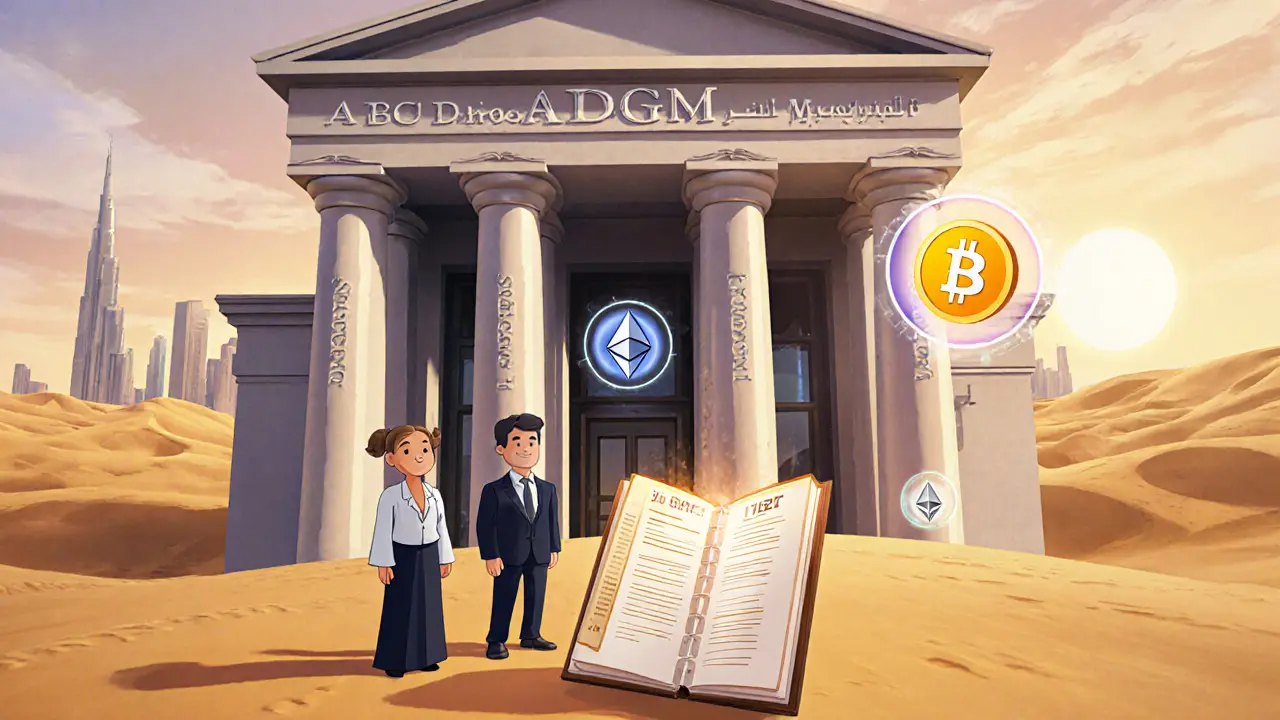ADGM Crypto Regulations: What You Need to Know
When navigating ADGM crypto regulations, the set of rules that govern digital‑asset activities inside the Abu Dhabi Global Market free zone. Also known as Abu Dhabi Global Market crypto framework, it aims to blend innovation with strict compliance. Within Financial Free Zones, jurisdictions offering tax‑friendly, streamlined licensing for fintech firms, ADGM stands out for its clear classification system and fast‑track approvals. The regime demands rigorous AML compliance, robust anti‑money‑laundering controls, transaction monitoring, and reporting standards that mirror international best practices. Moreover, any Token Service Provider, an entity that issues, manages, or trades digital tokens for clients must secure a proper license before operating.
Key Pillars of ADGM Regulation
ADGM crypto regulations encompass three core pillars: licensing, risk management, and market integrity. First, the licensing tier system classifies activities into Class 1 (exchange services), Class 2 (custody), and Class 3 (asset issuance). This classification creates a direct semantic triple: ADGM crypto regulations require Token Service Providers to obtain a Class 1 license for exchange operations. Second, risk management insists on capital adequacy, cyber‑security audits, and regular stress testing. Third, market integrity mandates transparent disclosure, insider‑trading bans, and real‑time reporting to the regulator. These pillars together form another triple: Financial Free Zones provide a regulated environment that supports AML compliance. The framework also aligns with the FATF guidelines, ensuring that cross‑border transactions remain traceable.
For crypto projects eyeing ADGM, the first step is a self‑assessment against the regulator's checklist. Does your token have a clear utility or security classification? Have you implemented KYC/AML procedures that can scale with transaction volume? If you answer yes, you can move to the application portal, where the process typically takes four to six weeks for a Class 1 license. The regulator also offers sandbox provisions, allowing innovative DeFi protocols to test on a limited basis before full‑scale launch. This sandbox approach creates a third semantic connection: ADGM crypto regulations enable sandbox testing for DeFi projects, fostering experimentation while keeping safeguards.
Beyond licensing, ADGM’s data‑privacy standards are worth noting. The jurisdiction respects the UAE’s Personal Data Protection Law, meaning that any personal information collected during onboarding must be stored securely and used only for stated purposes. This dovetails with AML compliance, as transaction monitoring tools need access to identity data but must also encrypt it to protect user privacy. Practically, this means choosing a compliance vendor that can integrate both AML checks and GDPR‑style data handling without friction. Many crypto exchanges reviewed in our collection, such as Deliondex and IDEX, have already adapted to similar regimes, offering a useful benchmark for newcomers.
Our curated posts also cover how ADGM’s regulatory stance compares with other jurisdictions. While China’s 2025 ban flat‑out prohibits crypto trading, Singapore’s MAS framework focuses on licensing and stablecoin oversight. ADGM sits somewhere in the middle, offering a permissive yet disciplined environment that attracts both institutional investors and retail innovators. This comparative view creates another semantic link: ADGM crypto regulations contrast with China’s outright ban and align with Singapore’s licensing model, giving projects a clear choice of regulatory climate.
Finally, practical benefits of operating under ADGM include access to a robust financial ecosystem, proximity to major Middle‑East markets, and the ability to tap into the Abu Dhabi Securities Exchange for token listings. The regulator’s emphasis on transparency also boosts investor confidence, which is evident in higher liquidity on exchanges that hold ADGM licenses. If you’re evaluating exchange options, our reviews of platforms like Barginex, CryptoBridge, and SharkySwap highlight the importance of choosing a service that complies with ADGM’s standards.
With this overview in mind, you’ll find the articles below break down each piece of the puzzle: from detailed exchange reviews and airdrop safety checks to deep dives into global crypto law. Dive in to see how the pieces fit together and to get actionable steps for aligning your project with ADGM’s forward‑thinking regulatory environment.
ADGM Crypto Regulation Guide: Abu Dhabi’s 2025 Framework
A concise guide to Abu Dhabi Global Market's 2025 crypto framework, covering licensing, prohibited tokens, cybersecurity rules, and how ADGM differs from Dubai's VARA and the UAE SCA.
